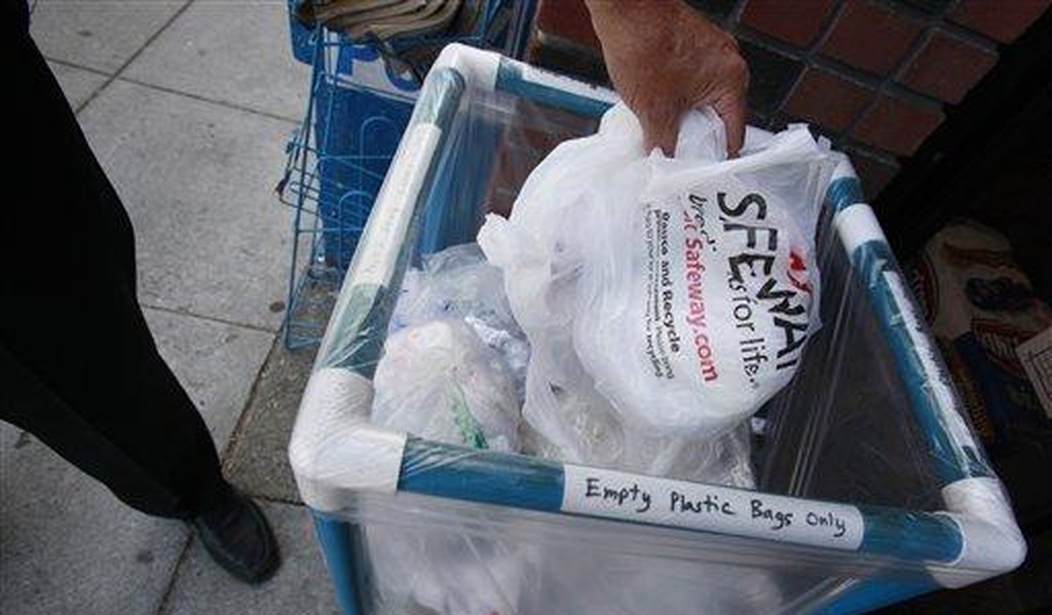Cozar's team didn't find country-sized islands of plastic bags strangling baby birds and sea turtles. It found "micro plastics." What people think of as a dump doesn't look like floating junk. Instead, ocean current "convergence zones" are swirling with flecks of plastic -- like a snow globe a half-minute after you shake it -- and with considerably less plastic trash than expected.
Not that plastic in the ocean is a good thing, but it's looking to be less of a peril to the planet than once suggested.
As I read about the Cozar study, I could not help but think of California state Sen. Alex Padilla and his Senate Bill 270, which would ban single-use plastic bags. San Francisco started the plastic bag ban craze in 2007. More than 100 cities in the state have followed as bag ban proponents have shopped two images -- of bags in the ocean and of dead marine life.
The thing is that you don't find whole shopping bags in convergence zones. Peter Davison, an oceanographer with California's Farallon Institute for Advanced Ecosystem Research, told me he frequently has seen plastic bags littering harbors, but in the ocean, one is likelier to come across debris from a fishing fleet and bits of plastic from many sources.
Recommended
In support of bag bans, the Surfrider Foundation has posted a video that asserts, "Plastics kill 1.5 million marine animals each year."
"I have no idea where they got that number," Joel Baker, environmental science professor at the University of Washington, Tacoma, told me. He has assigned students to track down that number, and "the trail goes cold."
Surfrider now uses a different number -- 100,000 marine animals. As for the 1.5 million figure, Surfrider senior staff scientist Rick Wilson referred me to a United Nations paper with no specific sourcing. Then he said, "I will admit it's difficult to track down a definitive scientific study source for it."
Factoids are almost as indestructible as plastic.
Both Davison and Baker can think of animals that have died from plastic; you can see photos on the Internet. But from bags? Davison found chunks of plastic in about 10 percent of 150 ocean fish he dissected. "We don't know if it kills them or not."
Neither Davison nor Baker likes the idea of plastic in the ocean, and neither would say it is not a problem. As Baker put it, "we don't know what effect it's having on organisms."
We do know, however, that single-use plastic bags require fewer resources than reusable bags -- which you have to wash -- and paper bags. Plastic bags litter harbors but also represent less than 1 percent of the U.S. municipal waste stream. It's a mistake to believe that what might replace them would have no downside.
























Join the conversation as a VIP Member